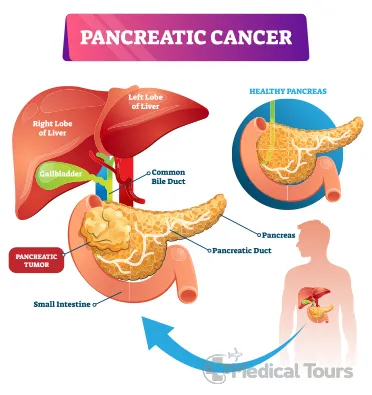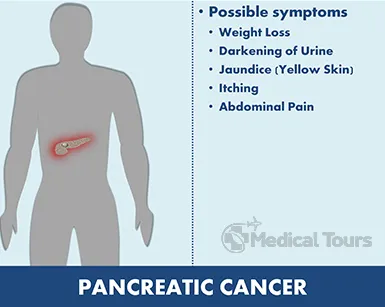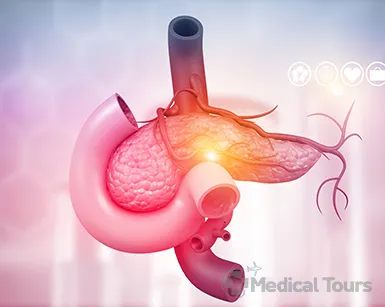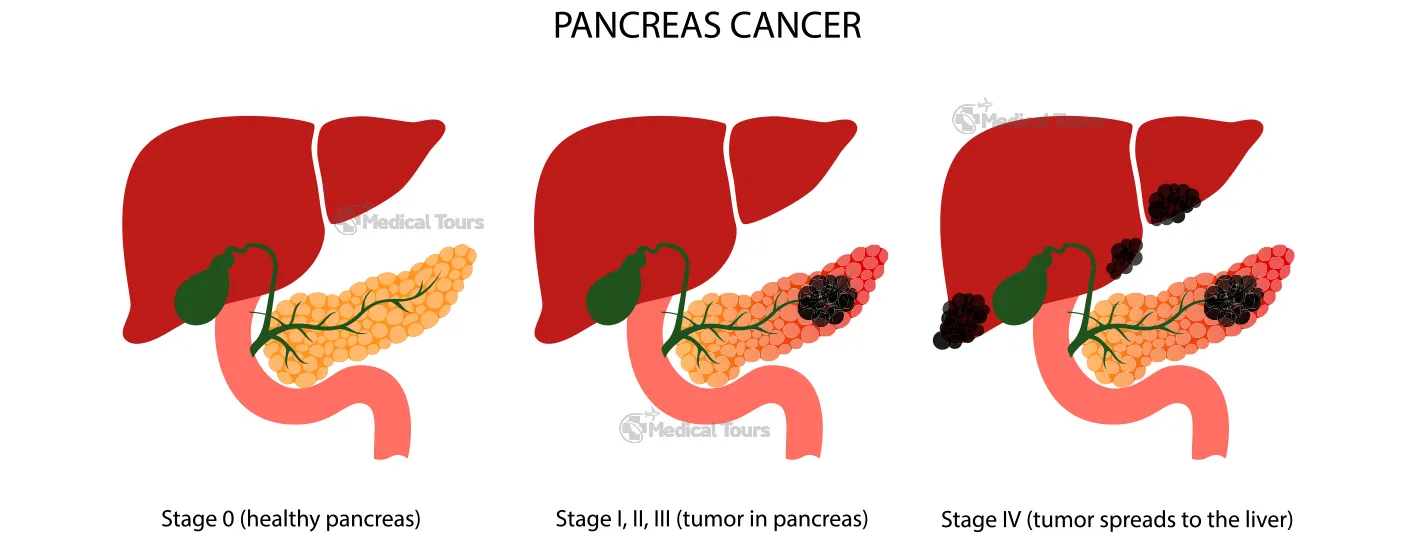The cost of treating pancreatic cancer in India varies. Now it's easy to calculate the cost based on the number of sessions you need.
| S.No. | Treatment | Price in ($) | Price in (₹) |
|---|---|---|---|
| 1. | Chemotherapy | $300 per session | INR 22,200 per session |
| 2. | Radiation Therapy | $3,000 | INR 222,000 |
| 3. | Whipple’s procedure | $7,500 | INR 557,000 |
| 4. | Total Pancreatectomy | $5,000 | INR 371,000 |
Today cancer is the most commonly occurring disease not only in India but also all over the world. In case of pancreatic cancer the severity increases because it has been said by many oncologists and physicians that pancreas is an important organ of the body, and apart from the liver it is the most crucial organ that is responsible for digestion and metabolism by the secretion of bile, the key ingredient that helps in the process of digestion of different nutrient substances such as proteins, fats, carbohydrates, and many others, and alongside secretes two types of hormones known as insulin and glucagon- that maintains the amount of blood sugar levels in your body. Pancreas, apart from aiding in digestion, has another important role of providing energy by helping in metabolism of glucose as the hormones released from pancreas help to break down glucose into the simplest forms and thus releases energy.
So, when someone develops a pancreatic cancer, all these functions get disrupted. According to recent studies, research, and experiments it has been revealed that, almost around 3 percent of cancer in the United States comprises of only pancreatic cancer that is responsible for the death of almost 7 percent of them.
Pancreatic cancer may be largely divided into two broad types:
This type of cancer occurs in the enzyme- secreting exocrine cells that are responsible for proper digestion. This is the most commonly found types of pancreatic cancer.
This type of cancer occurs on the hormone- secreting endocrine cells that are responsible for proper metabolism and controlling moods.
The symptoms of pancreatic cancer differ from one person to the other. Some also may not witness any kind of symptom of pancreatic cancer in the early stages. Yet there are certain common symptoms of pancreatic cancer that are usually found to occur among those who suffer from pancreatic cancer. Some of those symptoms are as follows:
There are several causes that are considered responsible for the occurrence of pancreatic cancer. Some of them are as follows:
There are precisely 4 discrete stages of pancreatic cancer. As the number of the stage increases, the severity of the cancer increases. Take a detailed look at what happens in each of those stages:
Treatment of any kind of cancer depends on several factors, such as the stage which the cancer is currently in, the damage that it has caused to the pancreas, and to the surrounding areas and many others. But the primary treatment procedure of pancreatic cancer involves two primary stages:
Though the type and procedures of pancreatic cancer treatment differs from one person to the other, there are certain common methods that should be followed for the treatment of this type of cancer. Some of those usual methods of treatment are listed here as follows:
Survival rates in case of pancreatic cancer can vary from one person to the other, depending on the stage of the cancer and its severity. Here is the average survival rate for pancreatic cancer.
| Stage | 1-year survival rate | 5-year survival rate | 10-year survival rate |
|---|---|---|---|
| Localized | 55% | 35.4% | 29.8% |
| Regional | 50.6% | 12.3% | 8.1% |
| Distant | 17.4% | 2.8% | 1.6% |
Several countries in the world are well-known for their medical tourism services, and India ranks well amongst these countries.
Out of all 36, JCI (Joint Commission International) accredited hospitals, MGM Healthcare, MIOT Hospital, and Fortis network are well-known hospitals for pancreatic cancer treatment in India due to their reduced treatment costs, advanced infrastructure, medical personnel, and other paramedics staff.
When the pancreatic cancer takes up a severe condition within the body, a stage that is difficult to cure, then the patient is kept in the palliative care where utmost care and comfort can be provided to the patient while the condition of the patient is serious.
The amount of time that is required to treat pancreatic cancer largely depends on the severity of the cancer in the patient.
For treating any kind of cancer after surgery, at least 2 to 3 weeks of chemotherapy is required on an average. The concerned physician will be the best person to decide for how long you will need chemotherapy.
It is quite normal to have digestion problems after having pancreatic cancer, but once the cancer is cured the digestive issues might subside.



